|
|
The current range of books. Click the image above to see them on Amazon (printed and Kindle format). More info on coinpublications.com |
|
|
-
Content Count
59 -
Joined
-
Last visited
Community Reputation
0 NeutralAbout basecamp
-
Rank
---

Contact Methods
-
Website URL
http://
Profile Information
-
Location
Durham City
Recent Profile Visitors
-
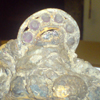
Help needed identifying a token.
basecamp replied to basecamp's topic in British Coin Related Discussions & Enquiries
Update: Just had a load of my finds returned from our local Finds Liason Officer for the Portable Antiquites Scheme, he was well impressed with the above fish token describing it as a childs toy! He states its a minature toy plate bearing 2 fish from a dolls house. These are often found in and around London but very rare out side the capital he dated it as 17th Century though and suggested that it was a very good find never the less. Obviously some things aren't always what they seem - one token less in my collection -

Who's a pretty boy then
basecamp replied to Geordie582's topic in British Coin Related Discussions & Enquiries
Geordie, what am I supposed to be looking at with the close up image? -

Mary, 1553-54 Silver Groat
basecamp replied to basecamp's topic in British Coin Related Discussions & Enquiries
Clive, many thanks for that, the 2 un-clipped coins are exacltly 2.3 cm - so question answered! Cheers. -
Hi all, I just found two Queen Mary 1553-54 hammered Groats (complete with pomegranate's and VERITAS etc). My problem is that my 2007 edition of Spinks simply lists a Half Groat (2493) as 'similar' - question is how can I distinguish a groat from a half groat?
-

Scottish Charles I Two Pence?
basecamp replied to Stechlin's topic in British Coin Related Discussions & Enquiries
It has to be said however that the other side does look like the moon - lol! I am sure you will agree -

Scottish Charles I Two Pence?
basecamp replied to Stechlin's topic in British Coin Related Discussions & Enquiries
First one I have seen with a crown and a thistle on the same side! -

Scottish Charles I Two Pence?
basecamp replied to Stechlin's topic in British Coin Related Discussions & Enquiries
Scottish Money, I am struggling to get my head around all the different varieties of the bodle. I now have seven of them and in the main they (one way or another) all have the familiar thistle on the reverse and different variations of a crown, the CR monogram and a roman numerals I or II on the obverse. My latest bodle however has a crossed sword and sceptre (dated 1678) under the crown. In short how many varieties are there and is there a comprehensive guide available? -
I got excited by this Victoria penny with two old heads amazingly I have since found another Victoria penny dated 1898 with two reverses - Chris put me right and its clear by this image how two coins have been machined down and glued together - cow glue if I remember correctly. Anyway the two coins are now sitting in a box labled 'pants'!!!
-

Help needed identifying a token.
basecamp replied to basecamp's topic in British Coin Related Discussions & Enquiries
Thanks for your quick reply Scotishmoney, so do you think its earlier than 17 th Century then? -

Help needed identifying a token.
basecamp replied to basecamp's topic in British Coin Related Discussions & Enquiries
-

Help needed identifying a token.
basecamp posted a topic in British Coin Related Discussions & Enquiries
Hi all, had some really excellent finds so far this year starting in February with my hammered Henry VIII silver penny (Bishop Ruthall) some 15 x 16/17th Century lead tokens and only this morning I found my 6th Scottish Charles I 'Turner' or 'Bodle' (complete thistle! this time). Not sure about this token though which I found yesterday, its 27mm, made of lead and if you look closely has a beaded border. The two fish look like pike but could be salmon - which is of course irrelevant! The other side is blank. Question is though is it a token - has anyone seen any thing similar? -
basecamp started following Henry VIII Hammered Silver penny
-

Henry VIII Hammered Silver penny
basecamp posted a topic in British Coin Related Discussions & Enquiries
I'd like to share my latest find with you all, its a Henry VIII hammered Silver penny (Sp.2331) Durham mint mm. lis with TD above the shield - Bishop Ruthall (1509 -23). The coin is only the second Durham mint coin to be found in Durham City so I have made history! I have had it analysed at the Archeology Dept at Durham Uni and its mean concentration of elements reads; Ag 97.95 Wt%, Cu 1.54 Wt%, Au 0.19 Wt% Pb 0.17 Wt% & Sb 0.15 Wt%. Apparently the dark staining can be removed but I have suggested that it should be left as it is. Being aware of the importance of the coin it is now in the safe hands of the Durham Universites Durham Palatinate Mint Coin Collection (Medieval coins from the bishop's mint in Durham), I am much happier that many will now have access to the coin rather than me showing it to a handful of visitors to my home! The legend may read 'Henry by the Grace of God King of England' - not to sure though. -
Excellent!!! this easy use site will help a beginner link me to identify coins so much more easily and will stop me asking those so silly questions - well done.
-

Tricky for me to grade...
basecamp replied to Coin_Hunter's topic in British Coin Related Discussions & Enquiries
Not sure if I want to buy any more of these countermarked coins just yet - particularily if they are expensive ones!!! Still trying to understand how a mercahnt company can get away with defacing the kings head and not be executed for it! -

Tricky for me to grade...
basecamp replied to Coin_Hunter's topic in British Coin Related Discussions & Enquiries
I have just aquired a George III hallf penny 1807 countermarked with 'Robinson Cutler Oxford', in a nut shell why did merchants like this razor blade merchant do this? In my opinion it actually makes the coin more collectable as it adds to the history, I have a dozen of these half pennys coins now all of a similar grade but this one now stands out as more interesting than all the rest! What is the general consensus of opinion out there? are countermarked coins more collectable or not, is there anyone out there who specialises in them that can shed a ray of light?
 Coinpublications.com
Coinpublications.com





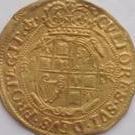

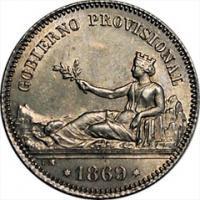
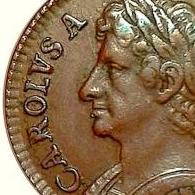
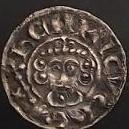
.jpg.0f16482f8c8a5cc46088b8f22ec5a3be.thumb.jpg.343b0843d2024d4b6d30083a26d74c39.jpg)